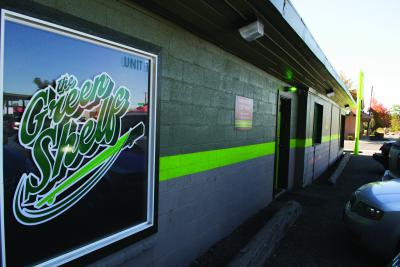Medical weed coming soon to recreational shops in Washington
January 14, 2016
On July 1, the previously unregulated medical marijuana market will merge with Washington’s current retail marijuana system.
According to Washington State Liquor and Cannabis Board (LCB) Spokesman Mikhail Carpenter, there are currently three different marijuana markets, and only one of the retail marijuana markets–is regulated. The others are the medical marijuana market and the black market.
The merger will coincide with changes to the continuously evolving legal marijuana laws in the state.
“I think generally the public has seen the issues from two systems and the confusion it can cause,” Carpenter said. “People just want clarity.”
I-502 passed in November of 2012 and legalized the sale of retail marijuana in Washington. The initiative passed with 56 percent of the vote. Public sales began on July 8, 2014.
According to an article from 94.9 KUOW in Seattle, public officials had criticized the unregulated market. They said it needed changing.
Their worries were answered in April, when Governor Jay Inslee passed the Cannabis Patient Protection Act (CPPA). The CPPA requires medical marijuana stores to join the state approved and regulated system that retail marijuana follows by July 1, 2016.
One of the more interesting nuances in the new rules is the voluntary medical marijuana database that will be created by the state’s Department of Health (DOH).
The database, which will be treated with confidentiality of regular medical documentation, is currently just in the beginning stages of being set up, said Kathie Pederick DOH medical marijuana program director.
Pederick said nothing can be done officially until the department finalizes negotiations with a third-party vendor. The vendor will help create and regulate the database with the DOH.
The database will require a consultant certification program that will qualify an employee of a retail store to authorize patients in the database.
The system “has to be something that’s easy for store clerks,” Pederick said, to keep the in-store process from taking too much time.
Public rules meetings were held across the state by the DOH in Yakima, Spokane, Renton and Vancouver. At those meetings, the DOH presented proposed changes and had time for public comments.
A main concern from the public was the security of the database.
“We want to ensure care and safe access. Ensure proper safeguards to protect the privacy of the patients,” one commenter said. “Protect information within the health IT system. Comply with HIPAA.”
Pederick assured that patient’s information wouldn’t get into the wrong hands.
Although the database is voluntary, it will give more rights to those who register with it. Registering for the database will void the sales tax for qualifying medical patients. It will also allow patients to purchase up to three times the amount of marijuana at one-time than those who are not registered.
Those who are not registered will only be allowed to possess four plants and six ounces of useable marijuana. Patients registered in the database will be allowed to possess six plants, up to 15 with doctor recommendation, and up to eight ounces of useable marijuana.
The above differences were a cause for concern at the LCB’s recent public hearing in Ellensburg.
Two out of the five citizens who spoke were troubled by the amount of marijuana they’d be able to grow and possess without registering with the database.
A female medical patient, who claims to not smoke her marijuana, said that the amount of marijuana it takes to make the oils she uses for cooking is far greater than four plants.
Both the DOH and LCB will have several months to take into consideration all they have heard from the public thus far.
The DOH plans to hold a public hearing on the database in April.



